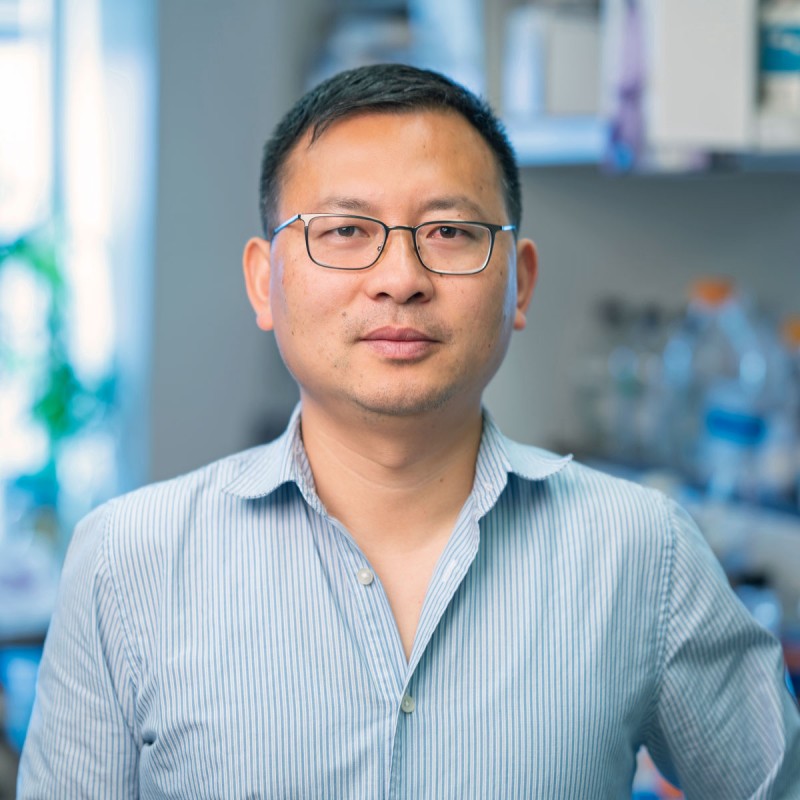Increasing Gene Editing Efficiency for CRISPR-Cas9 by Small RNAs in Pluripotent Stem Cells. Shahryari A, Moya N, Siehler J, Wang X, Burtscher I, Lickert H.CRISPR J. 2021 Aug;4(4):491-501. doi: 10.1089/crispr.2021.0014.PMID: 34406042
Generation of a heterozygous C-peptide-mCherry reporter human iPSC line (HMGUi001-A-8). Siehler J, Blöchinger AK, Akgün M, Wang X, Shahryari A, Geerlof A, Lickert H, Burtscher I. Stem Cell Res. 2020 Dec 16;50:102126. doi: 10.1016/j.scr.2020.102126. Online ahead of print.PMID: 33373890
Generation of a human iPSC line harboring a biallelic large deletion at the INK4 locus (HMGUi001-A-5) Shahryari A, Moya N, Siehler J, Wang X, Karolina Blöchinger A, Burtscher I, Bakhti M, Mowla SJ, Lickert H. Stem Cell Res. 2020 Jul 25;47:101927. doi: 10.1016/j.scr.2020.101927. Online ahead of print.PMID: 32739881
Generation of a human induced pluripotent stem cell line (HMGUi002-A) from a healthy male individual. Wang X, Malinowski AR, Beckenbauer J, Siehler J, Blöchinger A, Meitinger T, Häring HU, Staiger H, Burtscher I, Lickert H. Stem Cell Res. 2019 Aug;39:101531. doi: 10.1016/j.scr.2019.101531. Epub 2019 Aug 7.PMID: 31419739
Point mutations in the PDX1 transactivation domain impair human β-cell development and function. Wang X, Sterr M, Ansarullah, Burtscher I, Böttcher A, Beckenbauer J, Siehler J, Meitinger T, Häring HU, Staiger H, Cernilogar FM, Schotta G, Irmler M, Beckers J, Wright CVE, Bakhti M, Lickert H. Mol Metab. 2019 Jun;24:80-97. doi: 10.1016/j.molmet.2019.03.006. Epub 2019 Mar 20.PMID: 30930126
Genome-wide analysis of PDX1 target genes in human pancreatic progenitors. Wang X, Sterr M, Burtscher I, Chen S, Hieronimus A, Machicao F, Staiger H, Häring HU, Lederer G, Meitinger T, Cernilogar FM, Schotta G, Irmler M, Beckers J, Hrabě de Angelis M, Ray M, Wright CVE, Bakhti M, Lickert H. Mol Metab. 2018 Mar;9:57-68. doi: 10.1016/j.molmet.2018.01.011. Epub 2018 Jan 31.PMID: 29396371
Generation of a human induced pluripotent stem cell (iPSC) line from a patient with family history of diabetes carrying a C18R mutation in the PDX1 gene. Wang X, Chen S, Burtscher I, Sterr M, Hieronimus A, Machicao F, Staiger H, Häring HU, Lederer G, Meitinger T, Lickert H. Stem Cell Res. 2016 Sep;17(2):292-295. doi: 10.1016/j.scr.2016.08.005. Epub 2016 Aug 6.PMID: 27879214
Generation of a human induced pluripotent stem cell (iPSC) line from a patient carrying a P33T mutation in the PDX1 gene. Wang X, Chen S, Burtscher I, Sterr M, Hieronimus A, Machicao F, Staiger H, Häring HU, Lederer G, Meitinger T, Lickert H. Stem Cell Res. 2016 Sep;17(2):273-276. doi: 10.1016/j.scr.2016.08.004. Epub 2016 Aug 5.PMID: 27879211
Urine as a source of stem cells. Benda C, Zhou T, Wang X, Tian W, Grillari J, Tse HF, Grillari-Voglauer R, Pei D, Esteban MA. Adv Biochem Eng Biotechnol. 2013;129:19-32. doi: 10.1007/10_2012_157.PMID: 23038280
Modeling abnormal early development with induced pluripotent stem cells from aneuploid syndromes. Li W, Wang X, Fan W, Zhao P, Chan YC, Chen S, Zhang S, Guo X, Zhang Y, Li Y, Cai J, Qin D, Li X, Yang J, Peng T, Zychlinski D, Hoffmann D, Zhang R, Deng K, Ng KM, Menten B, Zhong M, Wu J, Li Z, Chen Y, Schambach A, Tse HF, Pei D, Esteban MA. Hum Mol Genet. 2012 Jan 1;21(1):32-45. doi: 10.1093/hmg/ddr435. Epub 2011 Sep 23.PMID: 21949351
Induced pluripotent stem cells can be used to model the genomic imprinting disorder Prader-Willi syndrome Yang J, Cai J, Zhang Y, Wang X, Li W, Xu J, Li F, Guo X, Deng K, Zhong M, Chen Y, Lai L, Pei D, Esteban MA. J Biol Chem. 2010 Dec 17;285(51):40303-11. doi: 10.1074/jbc.M110.183392. Epub 2010 Oct 18.PMID: 20956530
